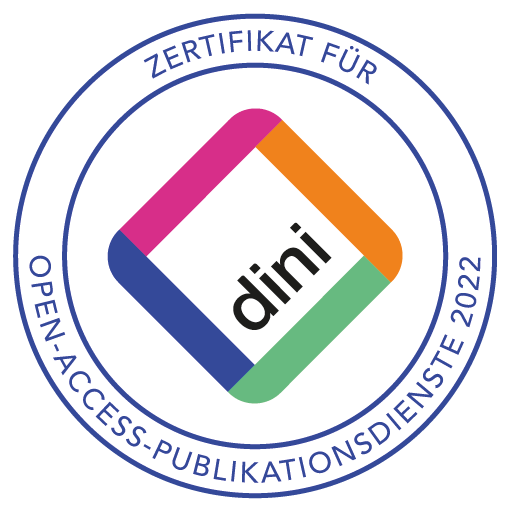Transnationale Geschichte
Refine
Year of publication
Document Type
- Journal Article (262)
- Online Publication (33)
- Part of a Book (14)
- Book (5)
Keywords
- Forschungsfelder (7)
- Begriffe (3)
- Methoden (3)
- Berlin (West) (2)
- Deutschland (DDR) (2)
- Amerikaner (1)
- Außenpolitik (1)
- Begriffe, Forschungsfelder (1)
- Demokratisierung (1)
- Deutschland (1)
Aus meiner erstmaligen Lektüre von Dan Diners Buch »Das Jahrhundert verstehen«, das ich wohl zu Beginn der 2000er-Jahre las, ist mir die einleitende Bemerkung des Autors in Erinnerung geblieben, die Geschichte Europas im 20. Jahrhundert sei besser zu fassen, wenn der Blick von der Potemkinʼschen Treppe in Odessa nach Süden und Westen streife. Der besondere Klang Diners ist mir ebenfalls im Ohr geblieben: viele prägnante Formulierungen, aber manchmal komplizierte Sätze – fast bis zur Unverständlichkeit. Die erneute Lektüre des Buches lässt der Treppe von Odessa ihren Wert als anschauliches Bild, aber die Botschaft tritt nun, nach 25 Jahren mehr an eigener Leseerfahrung und im Wissen um spätere Ereignisse, deutlicher hervor.
Wassili Grossmans Roman »Stalingrad« ist ein besonderes literarisches und historisches Dokument. Dem deutschen Lesepublikum eröffnet das Werk erstmals in einer für die Entstehungszeit erstaunlichen Vielstimmigkeit, Drastik und Breite Zugang zu sowjetischen Erfahrungshorizonten und Sichtweisen auf Stalingrad. Als Kontrastfolie zum Kult um die Schlacht in Putins Russland und zur nationalpatriotischen Instrumentalisierung des »Großen Vaterländischen Krieges« für den Krieg gegen die Ukraine hat der Roman außerdem eine unmittelbare Aktualität. Und nicht zuletzt handelt es sich hier um ein literarisches Zeugnis der jüdischen Geschichte.
Im Zuge der Recherchen zu meiner Dissertation klingelte ich im März 2023 im
8. Wiener Gemeindebezirk an einer unscheinbaren Haustür. Drinnen lagerten, im Keller der Wohnanlage, mehrere Aktenordner und unzählige Bücher: ein kleiner Teil des Erbes des Bibliotheksvereins »Jirásek« und damit des Lebenswerks des Bibliotheksvorsitzenden und Sozialdemokraten Ludwig Kolin. Das Material befand sich zu diesem Zeitpunkt in einem Übergangszustand zwischen einer projektfinanzierten Lagerung im »Forschungszentrum für historische Minderheiten« (angeschlossen an das Volkskundemuseum Wien) und seiner neuen Heimat im Schulverein »Komenský«. In den darauffolgenden Stunden arbeitete ich mich in dem kalten Keller frierend, aber begeistert durch das Material, das besondere Einblicke in die Lebenswelt tschechoslowakischer Migrant:innen in Wien ermöglicht. Den Bestand und seinen Urheber möchte ich hier vorstellen.
Dieser Beitrag untersucht anhand von drei Plastiken des sowjetischen nonkonformistischen Bildhauers Vadim Sidur (1924–1986), die zwischen 1974 und 1993 in der Bundesrepublik Deutschland und in West-Berlin als Denkmäler aufgestellt wurden, wie Sidurs Werke über den Eisernen Vorhang reisten. Mit Hilfe von Archivmaterial, Egodokumenten und Interviews werden die politischen und kulturellen Bedingungen der Aufstellung analysiert. Die Rezeption von Sidurs Arbeiten durch westdeutsche Atelierbesucher:innen in der UdSSR und an den Aufstellungsorten in der Bundesrepublik zeigt, wie diese Werke im Kontext von Diskussionen zu Nationalsozialismus, Holocaust-Gedenken und Kaltem Krieg interpretiert wurden. Sidurs Plastiken bewegten sich nicht nur physisch über geographische Grenzen hinweg, sondern erfuhren durch diesen Transfer auch einen Bedeutungswandel. Die Analyse eröffnet neue Perspektiven auf transnationale, inoffizielle Kulturbeziehungen während des Kalten Krieges und der frühen 1990er-Jahre. Zudem erinnert der Beitrag an einen in der Ukraine geborenen Künstler, dessen Auseinandersetzung mit Krieg und Gewalt heute neues Interesse findet.
Seit Gründung der Bundesrepublik Deutschland nehmen alle Bundesregierungen für sich in Anspruch, eine auf Frieden ausgerichtete Politik zu verfolgen. In Zeiten des Ost-West-Konflikts unterstützten sie in Afrika, Asien und Lateinamerika häufig aber auch autokratisch oder diktatorisch regierte Staaten mit fragwürdiger Menschenrechtsbilanz – darunter das seit 1962 unabhängige Ruanda. 1994 ließ dort eine verbrecherische Elite Hunderttausende Tutsi ermorden. Die Bundesregierung hatte die am Genozid beteiligte ruandische Armee zwischen 1978 und 1994 durch eine Bundeswehr-Beratergruppe in Kigali unterstützt. Schon zuvor hatte es Ausrüstungs- und Ausbildungshilfen gegeben. Die Auswertung kürzlich offengelegter Ministerialakten zeigt allerdings, dass die Bundesministerien weniger an einer Effizienzsteigerung der ruandischen Streitkräfte oder an einer Demokratisierung interessiert waren. In der Logik des Ost-West-Konflikts versuchten sie mit geringen Ressourcen gute Beziehungen zu pflegen und sich Rückhalt für eigene Positionen zu sichern. Aufgrund außenpolitischer Abwägungen hielt die Bundesregierung auch nach 1990 an der Militärkooperation fest. Von der Eskalation zum Genozid wurde sie überrascht.
Im Sommer und Frühherbst 1970 strahlte das Zweite Deutsche Fernsehen (ZDF) 13 Folgen einer Serie aus, die die Arbeit fiktionaler westdeutscher Entwicklungshelferinnen und -helfer in Brasilien darstellte. In entwicklungspolitischen Kreisen stieß die Serie aufgrund ihrer stereotypen Behandlung des Themas auf erhebliche Kritik. Aber auch das Bundesministerium für wirtschaftliche Zusammenarbeit (BMZ) suchte sich von der Sendung zu distanzieren, die seine Presse- und Öffentlichkeitsabteilung selbst mit angeregt und finanziell gefördert hatte, um für die Entwicklungshilfe zu werben. Der Aufsatz stellt die Inhalte der Serie dar und untersucht davon ausgehend die Motive hinter der ungewöhnlichen Kooperation. Dabei liegt der Fokus auf den Akteuren im BMZ, die die für sie neuartige Zusammenarbeit mit Fernsehleuten als Kontrollverlust erlebten. Die Analyse der TV-Produktion verdeutlicht zugleich den raschen Wandel in der bundesrepublikanischen Bewertung des Developmentalism. Dieser Wandel lässt sich auf die Entwicklungspraxis selbst zurückführen, aber auch auf globalhistorische Zäsuren der 1970er-Jahre.
Die Dürre von 1947 war nicht nur eine der extremsten Wetteranomalien der mitteleuropäischen Neuzeit, sondern auch ein von der Forschung bisher unterschätzter Faktor der frühen deutschen Nachkriegsgeschichte. Analysiert werden hier die sozioökonomischen Folgen der Trockenperiode, die im Süden Deutschlands am größten waren, und die politischen Reaktionen darauf – von Besatzungsbehörden, Bizonen-Verwaltung, bayerischer Landesregierung und landwirtschaftlichen Interessengruppen. Massive Ernteausfälle ließen eine humanitäre Krise befürchten, doch entschied sich die US-Regierung vor dem Hintergrund des beginnenden Kalten Krieges im letzten Moment für umfangreiche Hilfslieferungen. Die Dürre trug auch zur Neuorientierung der westalliierten Deutschlandpolitik bei. Damit die Besatzungsmächte nicht erneut für kostspielige Lebensmittellieferungen aufkommen mussten, sollten die Deutschen rasch mehr Verantwortung für ihre Selbstorganisation erhalten. Die politischen Reaktionen auf die Dürre in Westdeutschland werden abschließend mit der damaligen Situation in anderen Regionen und Ländern Europas verglichen. Dabei ergeben sich auch weiterführende zeithistorische Perspektiven auf die Klimaforschung.
Wie Frauen aus der Türkei ihre politischen Handlungsspielräume zwischen West-Berlin und der Türkei erweiterten - eine neue Perspektive auf Migration, Geschlecht und politische Bewegungen.
Migration hat die deutsche Gesellschaft tiefgreifend verändert. Wenig Beachtung als politische Akteurinnen fanden bislang Frauen, die seit den 1960er Jahren auch aus der Türkei zur Arbeit nach Westdeutschland kamen. Dabei waren Migrantinnen oft treibende Kräfte sozialen und politischen Wandels. Ob Vereinbarkeit von Lohnarbeit und Familie, kommunales Wahlrecht oder eigenständiges Aufenthaltsrecht: Migrantinnen brachten Themen auf die politische Agenda, die geltende Konzepte von Arbeit, Geschlecht und Staatsbürgerschaft in Frage stellten.
Elisabeth Kimmerle untersucht am Beispiel von West-Berlin, wie Migrantinnen aus der Türkei für ihre Rechte kämpften. Entlang sozialer Räume wie der Fabrik, dem Frauenwohnheim, der Straße und Frauenläden zeichnet sie den Wandel migrantischer Selbstorganisation zwischen 1961 und 1989 aus transnationaler und geschlechtergeschichtlicher Perspektive nach. Anhand zahlreicher Archivquellen und Interviews mit Zeitzeuginnen werden deren Erfahrungen und politische Räume jenseits von Parteien und Gewerkschaften sichtbar. Diese intersektionale Perspektive auf Migration und Geschlecht bietet neue Einblicke in die Geschichte migrantischer Kämpfe und zeigt, wie das »Private« in der Einwanderungsgesellschaft zum Politischen wurde.
Sidney Mintzʼ »Kulturgeschichte des Zuckers« ist längst ein Klassiker. Mintz (1922–2015) charakterisierte das Buch als Ergebnis einer langjährigen »Erforschung der Geschichte der Karibik und derjenigen tropischen, vornehmlich landwirtschaftlichen Produkte […], die mit der ›Entwicklung‹ dieser Region seit ihrer Eroberung durch die Europäer fest verknüpft sind« (S. 11). Ihn habe interessiert, wie und warum Europäer und Nordamerikaner zu Konsumenten karibischer Erzeugnisse wurden. »Und wenn man versucht«, so die programmatische Formulierung, »Konsumption und Produktion, Kolonie und Metropole zusammenzubringen, dann geschieht es leicht, daß man die eine oder die andere – den ›Mittelpunkt‹ oder den ›Außenrand‹ – nicht mehr so richtig scharf sieht.« (S. 13)
Wer im Berliner Humboldt Forum nach der »Zukunft der Benin-Bronzen« sucht, stößt auf eine Galerie sprechender Köpfe. Der gleichnamige Saal im Ostflügel des Gebäudes präsentiert als sein zentrales Ausstellungsobjekt eine Reihe von zehn hochkant gestellten, in Augenhöhe angebrachten Monitoren, auf denen neben Hermann Parzinger als Repräsentant der Institution auch ein Vertreter des Königshauses von Benin sowie Kurator:innen und Wissenschaftler:innen aus Deutschland und Nigeria in wohlabgewogenen Statements ihre Sicht auf die Zukunft der umstrittenen Sammlungsobjekte schildern. Immer, wenn eine Person das Wort ergreift, wenden sich die anderen ihr aufmerksam zu.

